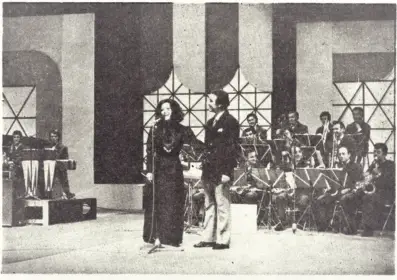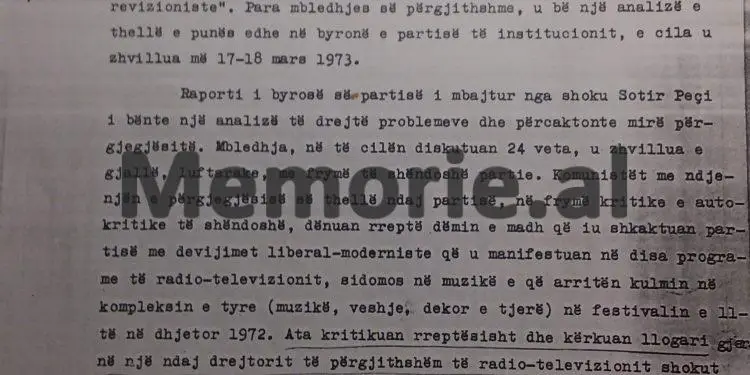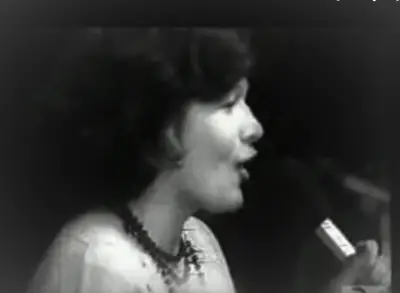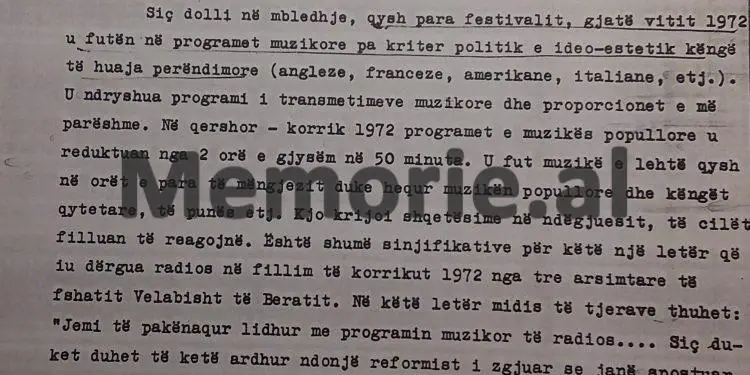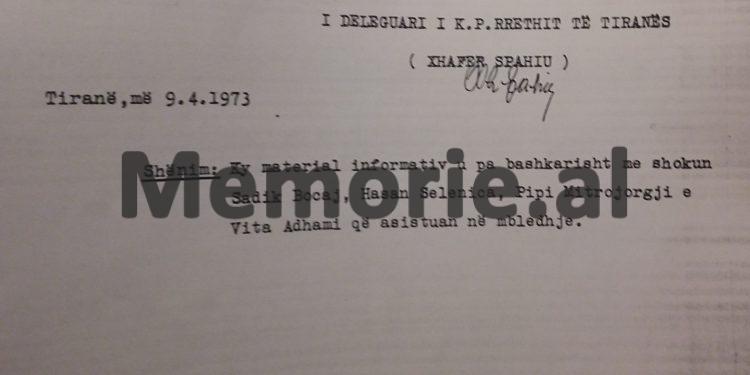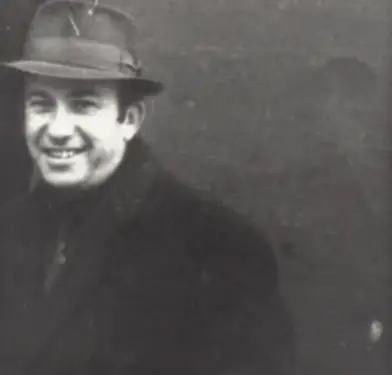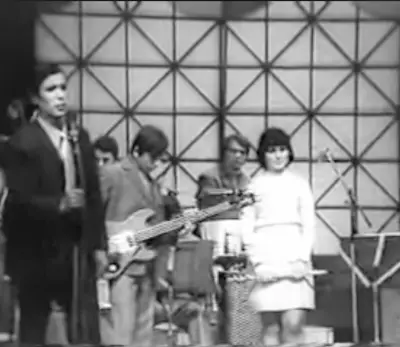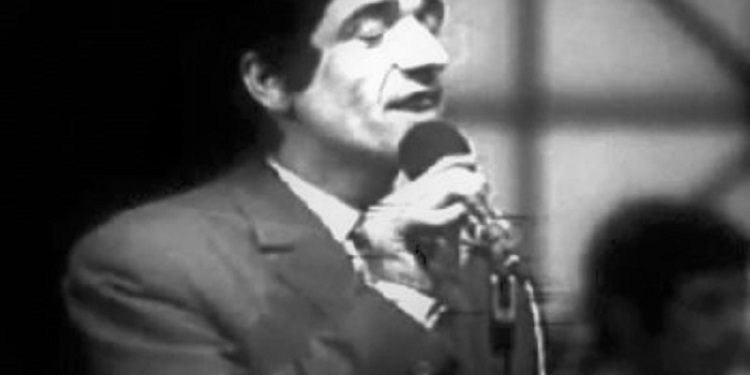Dashnor Kaloçi
Memorie.al publishes an archival document issued by the Fund of the former Central Committee of the ALP, which belongs to April 9, 1973, where the delegate of the Tirana Party Committee Xhafer Spahiu, by means of a report sent Enver Hoxha, informs him with details and details regarding the meeting of the communists of the Albanian Radio-Television, where numerous discussions took place and the 11th Song Festival on Radio-Television was analyzed. According to the report of Xhafer Spahiu, who drafted that report in cooperation with a working group composed of several other officials of the Central Committee of the ALP, such as: Sadik Bocaj, Hasan Selenica, Pipi Mitrojorgji and Vita Adhami, who were present at that meeting, where the main directors of Radio-Television, Todi Lubonja and Nefo Myftiu, as well as the management team of the 11th Festival, led by Mihallaq Luarasi as director, and Nikolla Zoraqi as artistic leader.
report
ABOUT
DEVELOPMENT OF THE GENERAL RADIO-TELEVISION MEETING
I
From March 23-25, 1973, the general meeting of the Communists of Radio-Television was held to give an account and election, in which the topic of discussion was “raising the level of ideo-political work of the party in the fight against the influences of bourgeois-revisionist ideology”. Prior to the general meeting, an in-depth analysis of the work was also done in the party bureau of the institution, which took place on March 17-18, 1973.
The report of the party bureau kept by comrade Sotir Peçi made a fair analysis of the problems and well defined the responsibilities. The meeting, in which 24 people discussed, took place lively, combative, with a sound party spirit. The communists, with a deep sense of responsibility towards the party, in a sound critical and self-critical spirit, severely condemned the great damage caused to the party by the liberal-modernist deviations that were manifested in some Radio-Television programs, especially in music, which reached their peak. in their complex (music, clothing, decor, etc.), at the 11th Festival in December 1972. They severely criticized and held accountable to the general director of radio and television, Comrade Todi Lubonja, who holds the main responsibility. for the liberal-opportunistic deviations from the straight line of the party, as well as towards the director of the Internal Radio – Mrs. Nefo Myftiu, who also has a great responsibility in this direction.
The meeting praised and fully expressed solidarity with the speeches of Comrade Enver delivered at the Presidium of the People’s Assembly, at the Third Plenum of the Central Committee and at the general meeting of the Communists of the Central Committee of the Party. The meeting served as a great school of political and ideological education for the communists, from which important lessons were learned for the further political, ideological and organizational strengthening of the party organization, youth, professional unions, the General Directorate and the collegiums of Radio. Television, to make the necessary turn as soon as possible and to advance all the work of this important institution of party propaganda.
As it turned out at the meeting, before the festival, during 1972, foreign western songs (English, French, Italian, etc.) were introduced in music programs without political and ideo-aesthetic criteria. The program of music broadcasts and the previous proportions were changed. In June-July 1972 folk music programs were reduced from 2 and a half hours to 50 minutes. Light music was introduced in the early hours of the morning, removing folk music and civic, work, etc. songs. This created disturbances in the listeners, who began to react. It is very significant for this a letter that was sent to the Radio in early July 1972 by three teachers from the village of Velabisht in Berat. The letter states, among other things: “We are dissatisfied with the music program of the Radio… Apparently some clever reformer must have come because all the shows and programs with different hours, without stability, that are not understood. Specifically, in the morning there has always been music from the provinces, folk dances and songs (from 5.30-6.45). This was quite convenient because he woke up and mobilized for work, people were all at home, the radio was buzzing in every place, military unit and enterprise. Now I cannot open that it is sleep music, it resembles funeral music. At 12.10 there was good music, suitable time for both holiday workers and cooperative members. This was removed, why….? Do you think that sometimes we find it difficult to distinguish Radio Tirana from the Italian station”.”?
Such reactions have generally been from public opinion. But they did not pay attention to these signals because according to them “this is a national radio and we cannot start with folk music”.
The right orientation to give dance music to the youth every Saturday was distorted because this 4-hour show (!?) Was filled with western music of all kinds and had almost no national music (folk or dance).
Comrade Todi Lubonja tried to introduce “modern” Albanian light music in foreign propaganda shows to the detriment of revolutionary music. He suggested this to some external editors. But they opposed it, saying: “The Central Committee of the Party has directed us to raise the people to a revolution and not to give them music to make a fun evening.” Even after this objection, he said: “look at this issue”.
A concert with songs of English light music was organized and broadcast (only once) on Comrade Todi’s Television. Encouraged by this liberal spirit in music, singer Justina Alija asked to do a concert where she would sing only foreign English songs in English.
In addition, people with long and favorite hair, girls and women in inappropriate clothing and others are allowed to appear on the Television screen.
But the culmination of this distortion of the Party line in music and on stage and in its entire complex was reached at the 11th Festival. All the discussants stopped at this event, which was described as a “black spot” in the activity of Radio-Television. Making sincere self-criticism for the indifference they showed, for the lack of revolutionary vigilance and for the liberal performances, etc., they criticized very harshly, with a high spirit of partisanship and from a principled position the main organizers of this festival in the first-place comrade Todi Lubonja Nafo Mufti. Comrade Todd personally took care of this festival. The orientation he presented to the Central Committee of the Party for this festival, which as they were outlined in general lines, were straight, in practice he distorted, crystallizing a completely foreign platform with liberal-modernist tendencies. Those composers, poets, musicians who took part in the festival, instead of practically orienting themselves in the Party line, found in comrade Todi an open support and encouragement for copying, for imitations, for grafting, for the introduction of decadent influences that came in opposition with the Party line in music. Rather than overconfidence in specialists – it was said at the meeting – was overconfidence in oneself, arrogance of responsibilities, the tendency towards modernity and foreignness, was the concept that Radio – Television was left behind, had become anachronistic, conservative, archaic and folklorizing that pushed them into these grave deviations. You say that an “Extraordinary” festival was being prepared, that this would be the “First Real Festival of Easy Song”, etc. All the preparations of the festival were made out of the control of the party organization, even the tradition that was not discussed collegially in the meeting of the General Directorate was violated, nor, as a rule, they did not inform the Ministry of Education and Culture, nor The Writers and Artists League, nor was the apparatus of the Central Committee and the Committee of the District Party of the Region notified to assist in the general rehearsal of the festival. When Comrade Todi Lubonja was once signaled about this, he replied: “There is no need, we organize it ourselves, we answer ourselves”. The festival was led by an external “director” where the tone was given by comrade Todi, and under his leadership Nefo, Mihallaq Luarasi and Nikolla Zoraqi. All the directors and other internal staff of Radio-Television were not questioned. As one discussant put it: “Todi introduced the smuggling festival to the Party, the people, the employees of Radio-Television” in the name of the fight against conservatism and for the youth, in the name of “the demands of the time”, “the demands of the youth”, in name of “innovation and modernity”, of fighting “outdated traditions” and “folklore”, etc.
For a long time, comrade Todi Lubonja was engaged in the preparation of a new structure of Radio-Television, which aimed to give our Radio-Television such a direction: “Information-culture-entertainment”. This direction is the same as that given to Radio-Television, western countries. Even in the construction of this new structure appeared the liberal views of comrade Todi, his tendencies for copying and imitation from the West, and which were a departure from the political, ideological, cultural-educational orientation that the Central Committee of the Party has appointed Radio -Our television. This structure was not implemented, except in part by the experimentation of the Joint Information Directorate for Radio and Television. In the information of the Television (news show), during this time it happened that some foreign news was accompanied on the screen with inadmissible TV chronicles such as the case of the reception of Pompidou from Brezhnev at the Minsk airport, the visit of Kissinger, the reception of Nixon on the White House, & c. The argument that “these people see on the screen of Italian television” was again a liberal argument, because it is one thing when you see it on Italian television, and another when it is rebroadcast by our television. The same arguments were made for the introduction of decadent foreign music in our programs. With the creation of a special directorate for Information, Television, in practice, would be left with the appointment of Mihallq Luarasi (theater director), as Director of Television. The preparation of the new structure was based on his concept that: Radio-Television was behind time and needed “modernization”. The report and the discussants also condemned the indifferent and micro-bourgeois attitude that many communists have held towards foreign influences that were manifested in music programs and especially in the festival. But this indifference has manifested itself in other directions as well. Before the eyes of the communists the work discipline, the technical discipline, the Party discipline were violated, they saw that in the life of the party organization and the collective there were disruptions, foreign influences had entered, manifested in foreign fashion, in receiving unfair honoraria, in small thefts of pockets, in equipment damage, in the misuse of material and financial means, there were many manifestations of subjectivism, conformism, sick familiarity, the division of the collective into young and old, the able and the incompetent , conservatives and innovators, saw that the Party directives regarding the circulation and treatment of staff were distorted, people with poor political composition were hired, etc. But to these foreign performances the communists sometimes remained indifferent or spoke in the corridors in a low voice. Although there were communists who reacted fairly, they clashed with the liberal views of Todi Lubonja and Fadil Paçrami in the case of Klimi Mises, an issue that had to do with the correct application of Party norms on the new cadre and in the case of Emin Klosi to whom Todi, contrary to the assessment of the organization, made a completely subjective undeserved characteristic. Condemning indifference, the communists rightly stressed the need for a constant war between themselves and others to create in every cell of this institution a high fighting spirit of the Party, a principled attitude towards the party line without mutual concessions and compromises. In connection with these foreign manifestations of liberalism and indifference, the meeting of the organization stopped and criticized the low level in some cases of ideological and political work and set tasks for the future. As it turned out from the report of many discussants, the ideological work in this institution was weak, not to mention that sometimes it was almost neglected. What little was done was characterized by formalism and stereotyping. Under these conditions, a number of foreign ideo-artistic concepts spread. In some cases, the ugly was theorized as beautiful, the decadent as new, the foreign as modernized national! Our literary and artistic principles were used by some as slogans, by others they were interpreted according to other liberal views, thus paving the way for bourgeois revisionist theories in culture and art. In order to strengthen the ideological work, it was emphasized that the party documents and speeches of Comrade Enver should be studied deeply and continuously, to become a lively, militant, revolutionary life through discussions, debates, confrontations, etc. For various ideo-aesthetic problems of politics in order to always successfully fight the pressure of foreign ideology that is exerted in a special way on this institution both from outside and inside. To build from each basic party organization such a program of ideo-political work to respond to the real-life requirements of each collective according to its specific specifications.
THE DELEGATOR OF K.P. OF THE TIRANA DISTRICT
(XHAFER SPAHIU)
Tirana, on April 9, 1973
Note: This information material was seen together with comrade Sadik Bocaj, Hasan Selenica, Pipi Mitrojorgji and Vita Adhami who attended the meeting.
Continues tomorrow




